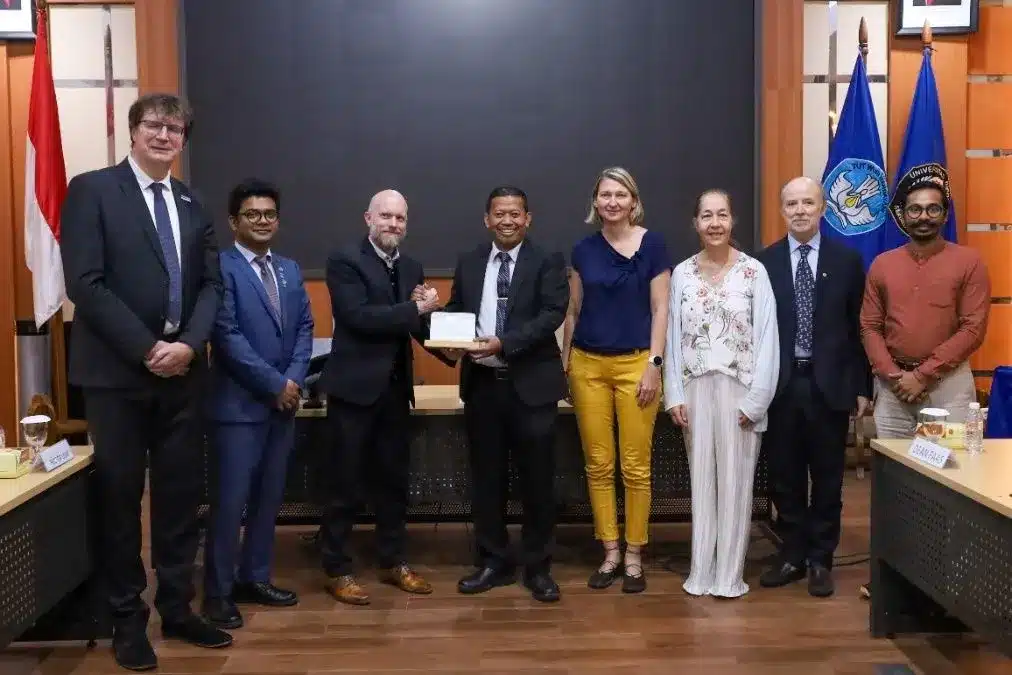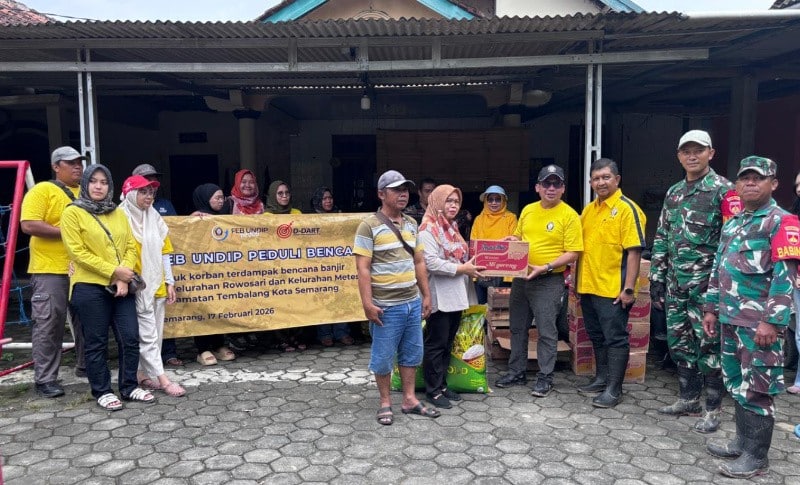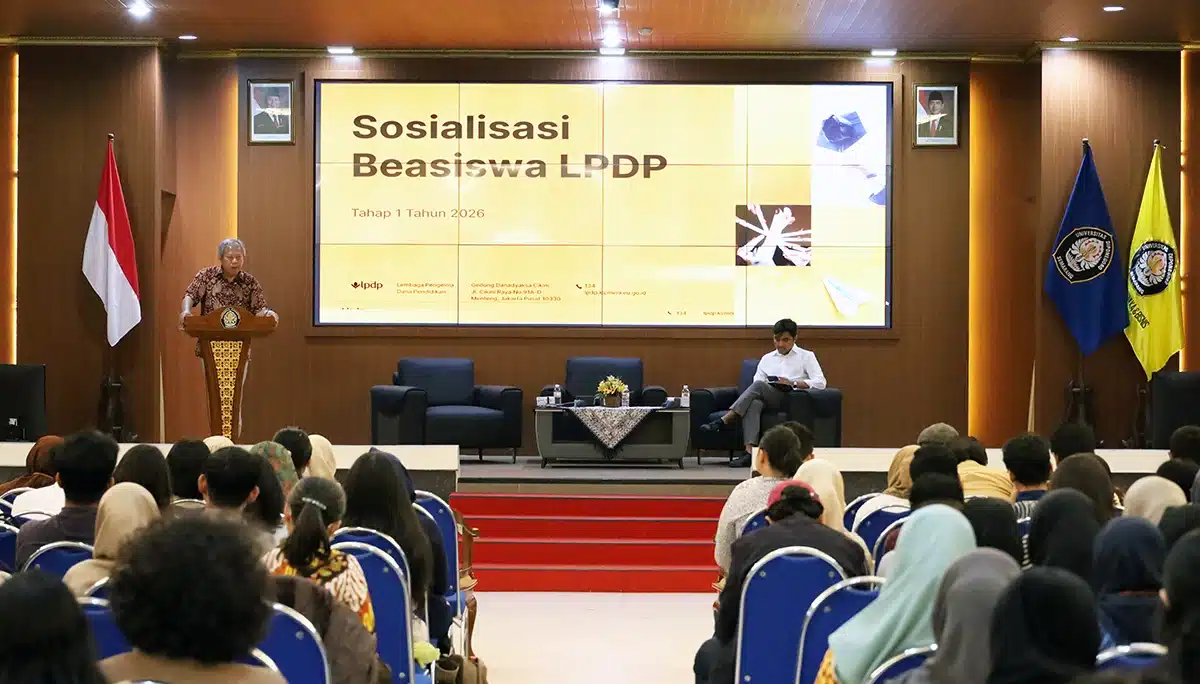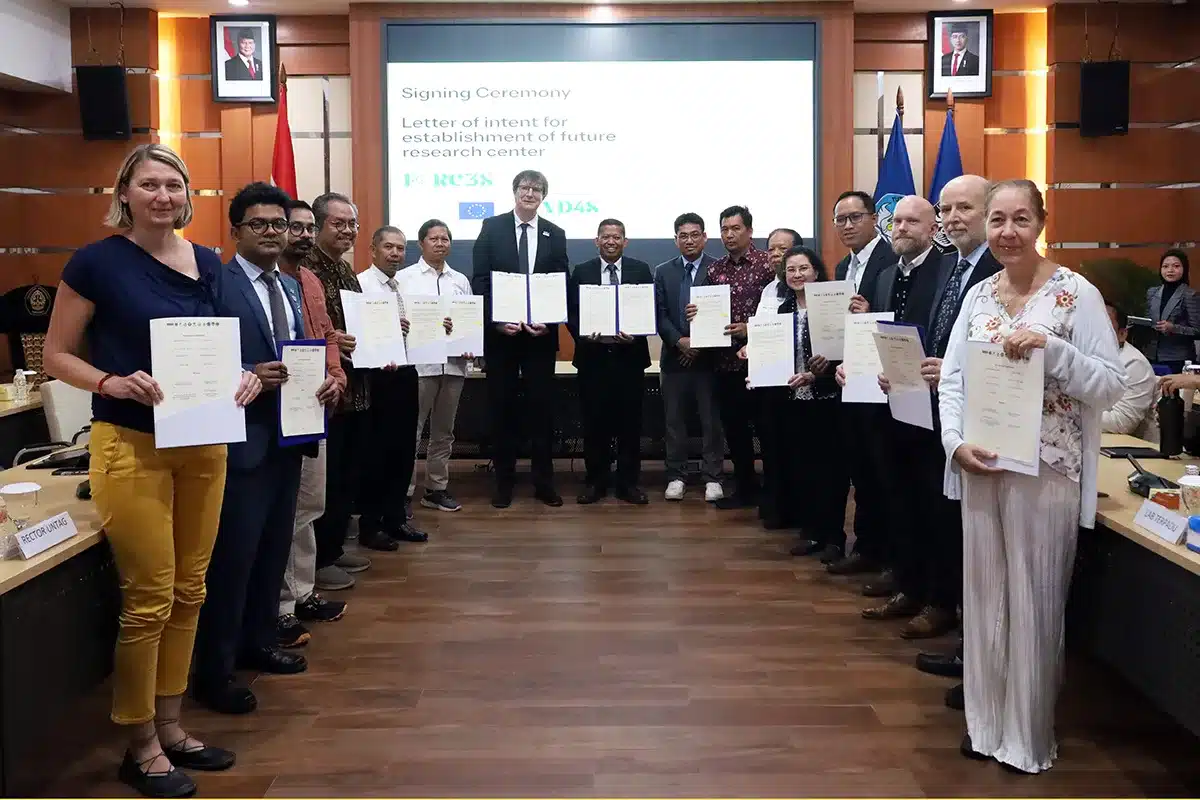UNDIP, Semarang (October 8, 2025) – Universitas Diponegoro (UNDIP) officially launched the Food Research for Safety, Security, and Sustainability (FORC3S) initiative through a soft launching ceremony held at the Rector’s Meeting Room, Widya Puraya Building, UNDIP Rectorate, Tembalang Campus, on Tuesday, October 7, 2025. The event was attended by rectors from national partner universities as well as international delegates from various European universities. FORC3S serves as a collaborative and interdisciplinary research platform focusing on three key issues: Food Safety, Food Security, and Sustainability of food systems.
This initiative is part of the international collaboration under the FIND4S Consortium (Enhancing Higher Education Capacity for Sustainable Data-Driven Food Systems in Indonesia), coordinated by UNDIP’s Faculty of Animal and Agricultural Sciences and supported by Erasmus+ funding from the European Union.
The soft launching of FORC3S was also marked by the signing of a Letter of Intent (LoI) between UNDIP, European partners, and national universities as a symbol of shared commitment to building a sustainable research network. The initiative marks the first step toward establishing a Center of Excellence for Integrated Food Research under the Faculty of Animal and Agricultural Sciences (FPP UNDIP), aimed at strengthening academic collaboration and global research in sustainable food systems.
In his remarks, UNDIP Rector, Prof. Dr. Suharnomo, S.E., M.Si., emphasized that UNDIP’s recent achievement of ranking #624 in the QS World University Rankings reflects the university’s determination to become a noble and valuable research institution.
“This achievement is more than just a number—it represents our moral commitment to making science and education a driving force that empowers communities, strengthens industries, and inspires positive change,” he stated. He added that FORC3S is a concrete step toward bridging scientific knowledge with human welfare, ensuring that research outcomes bring tangible benefits to society.
Prof. Suharnomo also highlighted UNDIP’s various contributions to sustainable development, such as research on eco-enzymes and organic fertilizers for farmers, desalination technology for brackish water treatment in coastal areas, and capacity building for MSMEs in value-added food products. The FORC3S initiative, he noted, aligns closely with Sustainable Development Goal (SDG) 2: Zero Hunger, which ensures access to safe, nutritious, and sustainable food for all.
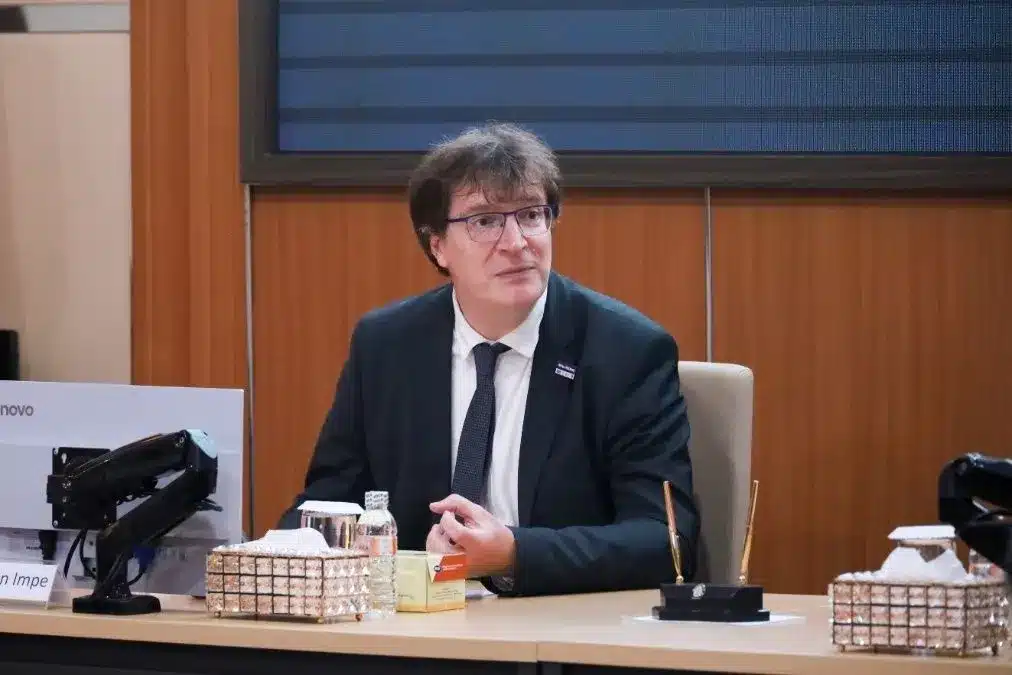
From the international partners’ side, Prof. Jan Van Impe of KU Leuven, Belgium, who leads the FIND4S consortium, expressed his appreciation for UNDIP’s leadership in strengthening global collaboration on food systems. “FORC3S is not merely a research project—it is a shared movement to build food systems that are safe, secure, and sustainable. We are not fighting against, but fighting together for a better food future,” he said.
He also commended UNDIP’s academic leadership for fostering cross-cultural and interdisciplinary collaboration, building upon the longstanding partnership between KU Leuven and Indonesian universities since the early 2000s. Prof. Jan praised the dedication of young Indonesian scholars, including Dr. Yoga, for bringing global perspectives back to strengthen national research communities.
“This is the true meaning of impactful education and research. May the FORC3S always be with us—may the power of collaboration always be with us,” he said with appreciation.
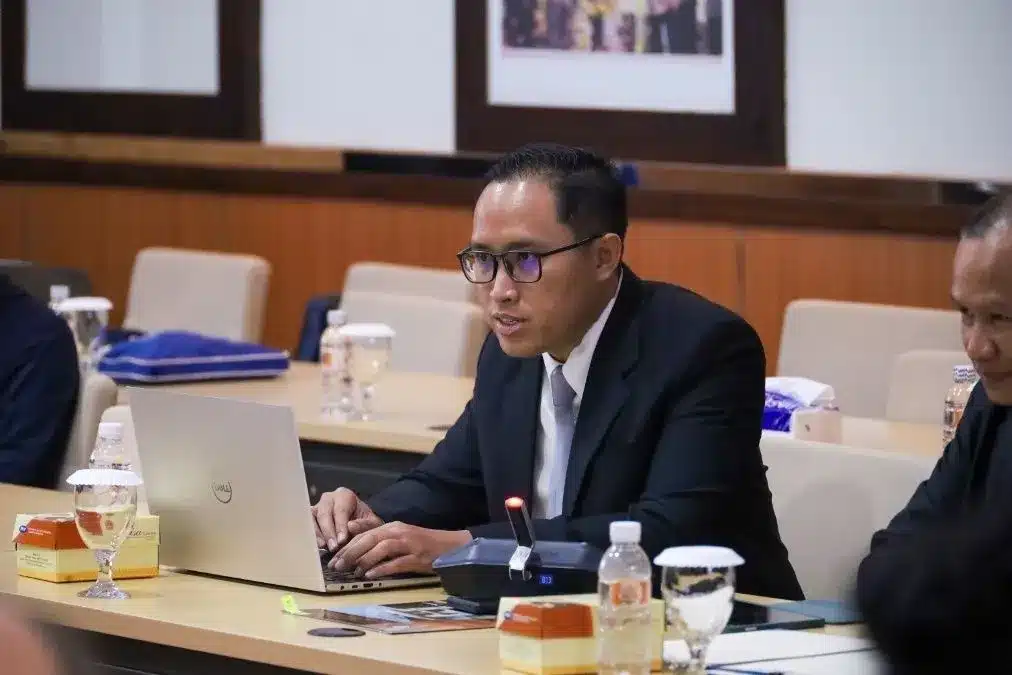
Meanwhile, Dr. Yoga Pratama, S.TP., M.Sc., Ph.D., initiator of FORC3S and coordinator of the FIND4S program, explained that the project involves eleven universities from Indonesia and Europe, including Universitas Semarang (USM), Universitas Muhammadiyah Semarang (UNIMUS), Universitas Tidar (UNTIDAR), Universitas PGRI Semarang (UPGRIS), Universitas 17 Agustus 1945 Semarang (UNTAG), Universitas Karangturi (UNKARTUR), as well as KU Leuven (Belgium), University College Dublin (Ireland), Anhalt University of Applied Sciences (Germany), and Catholic University of Portugal.
“Indonesia holds a strategic position in the global food system, and FORC3S will serve as a multidisciplinary collaboration hub that integrates expertise in sustainable food production, circular economy, food resilience, and community nutrition,” explained Dr. Yoga, who is a lecturer in the Department of Food Technology.
Through five expert panels that have been designed, FORC3S is expected to produce leading research that is not only academically relevant but also provides concrete solutions to global challenges such as food loss, food waste, and inequitable food distribution.
This initiative serves as tangible proof of Impactful Science and Technology (Diktisaintek Berdampak)—integrating research, innovation, and community service to improve societal well-being. With the launch of FORC3S, UNDIP reaffirms its role as a world-class research university that harnesses knowledge as a force for transformation—upholding the spirit of “Noble and UNDIP, Beneficial UNDIP.” (Public Communication/ UNDIP/ DHW & Chika)
